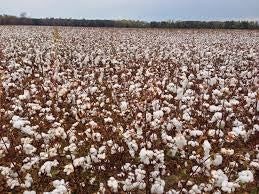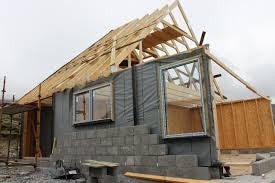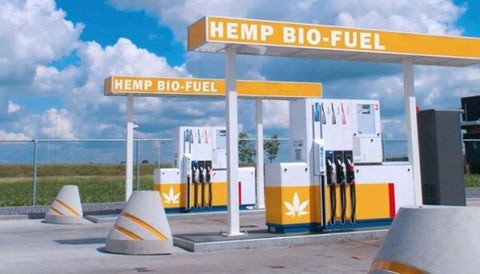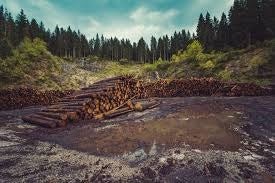5 Everyday Necessities Hemp Will Replace and How This Will Change Our World
What we buy influences how the world operates. We have the power to change the world simply by changing our buying habits. When we all join in, the industries that control our buying habits have to take notice of our demand and adapt or fail.
Hemp can be manufactured into so many different things that it will disrupt five major industries that make up all of our necessities and will no longer contribute to our polluted environments. Hemp will replace plastics, paper, fuel, building materials, and fabric. Let's take a look at what hemp can do for us.
Plastics
Look around and notice many things are made of plastic. Too many to count. Plastic is convenient and cheap, but it comes with too many health and environmental hazards.
Plastics are made by refining raw materials, like oil or plant cellulose, into ethane or propane, which is then treated with heat to produce ethylene or propylene. There are many different grades of plastics that are molded into their final product. You can read more about plastic production here.
Hemp is 65-75% cellulose, making it an attractive raw material. Hemp hurds (the woody core of the stalk) are used as biodegradable cellophane.
A note about biodegradability: Almost nothing that is biodegradable gets the chance to break down in landfills. This makes commercial composting facilities critical. And most hemp plastics are not 100% hemp, meaning they still include oil-based plastics, except items sold on HempforHealthcare.com like our biodegradable hemp plastic straws.
Here some companies already creating hemp plastics.
Fabric
The vast majority of our textiles are made from cotton. However, cotton is not an environmentally friendly crop, especially at the rate in which the world consumes clothing. It requires a tremendous amount of water, pesticides, and land to grow. Hemp has been used historically as a textile and can easily outproduce cotton for two main reasons.
Hemp grows quickly across a variety of climates. It requires less water, less land, and holds more carbon dioxide than trees and subsequently cleans the air. It's tall, leafy stalks discourage weeds by blocking sunlight and it has a natural pest-resistance which eliminates much of the need for pesticides. In addition, hemp renews the soil as it grows by dropping its leaves, causing a natural composting action that allows the crop to be renewed several times a year. All this serves to make hemp more cost-effective, especially since every part of the plant can be used.
2. Quality of Product
Hemp clothing is lightweight, absorbent, and has three times the tensile strength than cotton. It is naturally UV resistant, antimicrobial, and thermoregulating. It doesn't break down as fast as cotton, lasts longer, and gets softer with age.
To learn more about how hemp compares to cotton, click here.
Check out these companies supplying the world with this amazing textile:
Building Materials
Classic concrete manufacturing is very energy intensive, and concrete labor is harmful and toxic to the skin and body. Hempcrete offers a sustainable, non-toxic alternative. It's made from hemp hurds, water, and a mineral lime base. These ingredients bind together to form non-structural bricks that are durable and great for insulating. Once dried, they resemble a stucco finish, but can also be smoothed out, depending on how finely grounded the outside layer is.
While hempcrete homes can last as a house built from concrete and other traditional materials, it can be broken down in soil and water and recycled or left to biodegrade. Since it is non-toxic and plant based, the remains will fertilize the soil.
Hempcrete is breathable as it is able to store moisture and release it when conditions allow. It is also able to store heat from both external and internal sources, making it an efficient heat regulator. This is very useful for arctic climates like Alaska.
Your hempcrete manufacturers:
Biofuel
Hemp, like other biofuels, is turned into ethanol through a process called cellulolysis. Essentially, this refines the natural sugars and starches into fuel.
Biofuels can be carbon neutral. Carbon neutrality is when the amount of carbon released during combustion is the same amount the plants will absorb in their growth. Though to achieve true neutrality there are many other factors to consider, such as farming techniques and transportation.
Hemp is more attractive than other biofuels, like corn, barley, sugar cane or palm oil, because of how it grows. Hemp requires less water, land, pesticides, and time to grow than other crops, making it more sustainable for businesses and the environment alike.
Paper
Hemp is clearly better suited for the manufacturing of paper than trees. Hemp can be grown and regrown in a fraction of the time and space it takes for a tree to grow and mature and doesn't require harsh chemical bleaching agents. Since hemp has a higher concentration of cellulose and a lower concentration of lignin than a tree, it doesn't require chemical stripping agents Cellulose is important for paper, lignin is not.
Paper made from hemp has a higher quality, making it less susceptible to cracks, fading, and yellowing. It will last longer than any tree paper, as it can be recycled seven to eight times. It is also used to make other paper products like paper towels and toilet paper.
Here are some hemp paper manufacturers already making the switch:
With Hemp, we have tangible hope for a cleaner, healthier, and more sustainable future. #BUYHEMP
When you subscribe to the blog, we will send you an e-mail when there are new updates on the site so you wouldn't miss them.
| FDA Disclaimer |
| Important Disclaimer: The information contained on this site is intended for informational and educational purposes only. Any statements made on this website have not been evaluated by the FDA and any information or products discussed are not intended to diagnose, cure, treat or prevent any disease or illness. Please consult a healthcare practitioner before making changes to your diet or taking supplements that may interfere with medications. Any medical information published on this website is not intended as a substitute for informed medical advice and you should not take any action before consulting with an informed healthcare professional. |






Comments